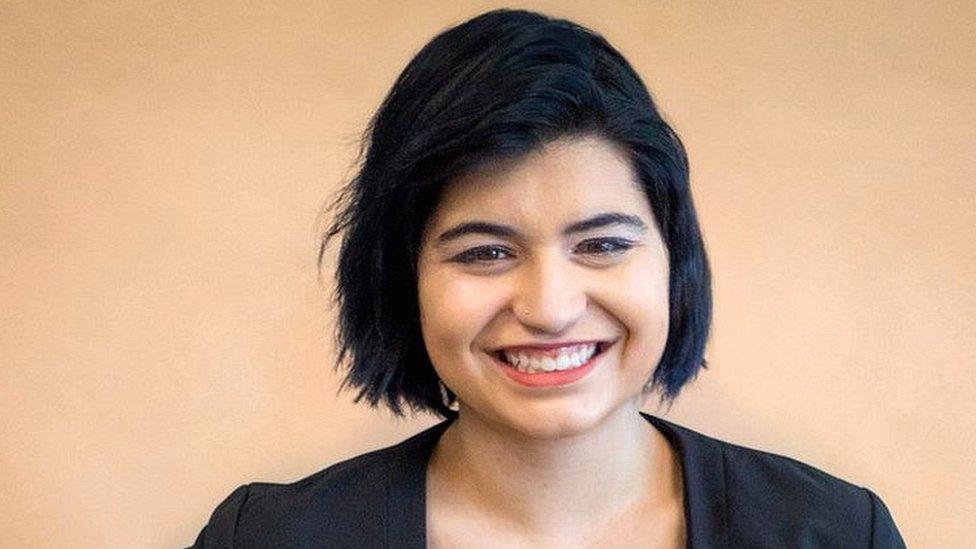The teenager who made medical history to save her mother
- Published
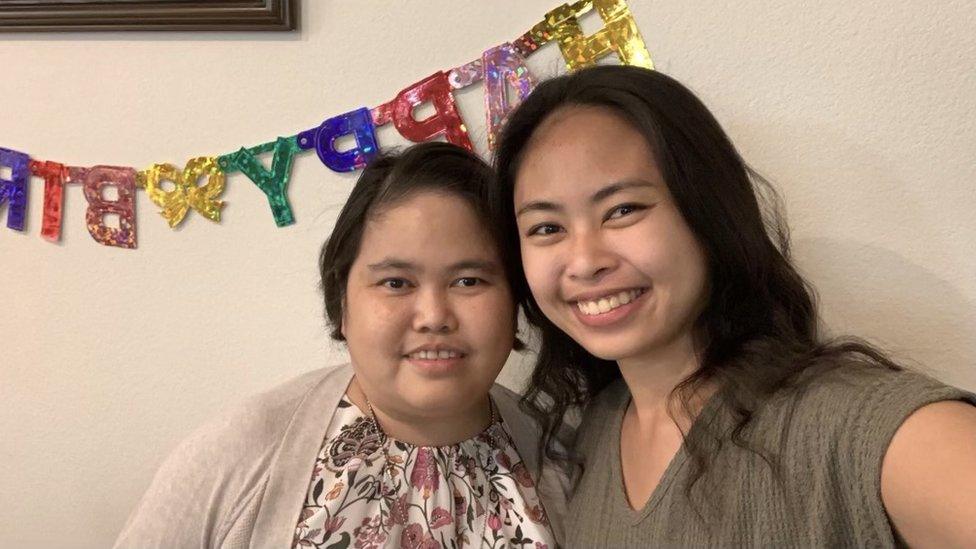
Aliana Deveza organised the organ swap which saved her mum, Erosalyn's, life
When she was just 19, Aliana Deveza organised and underwent an historic operation to save her mum's life.
She persuaded a hospital to do the first organ swap in the United States where different organs were exchanged between unrelated pairs of donors.
"The first thing that I asked when I woke up was just how was my Mom? Is she okay? Did she make it?
"I wasn't really worried about myself anymore, I was just kind of focused on getting through the pain that I was feeling. Just hearing that everybody had made it, I was able breathe again."
When Aliana says everyone else, she's not just talking about herself and her mother, because two other women - sisters - were also having operations.
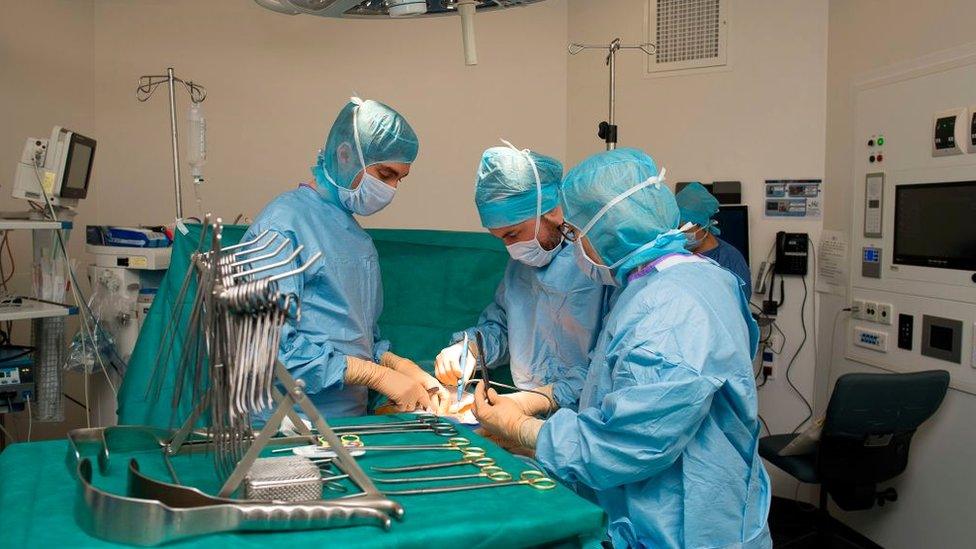
Most people are born with two kidneys but we only need one to function
One of Aliana's organs would go to one of the sister, and one of the sister's kidneys would go to Aliana's mum. Two lives were being, with two people donating organs to strangers to save a family member.
The operation was the result of two years of hard work which paid off. Aliana had saved her mother Erosalyn from years of kidney dialysis, illness and possibly an early death -and a complete stranger would go on to live a new life.
Kidneys are one of the only organs a living person can donate to another, as most of us are born with two but we only need one to function.
Yet people who need a kidney are not always able to take one from someone they love, even if that person is willing to give it.
Across the world around 150,000 organs were transplanted in 2019 - a small fraction of those who need a new organ.
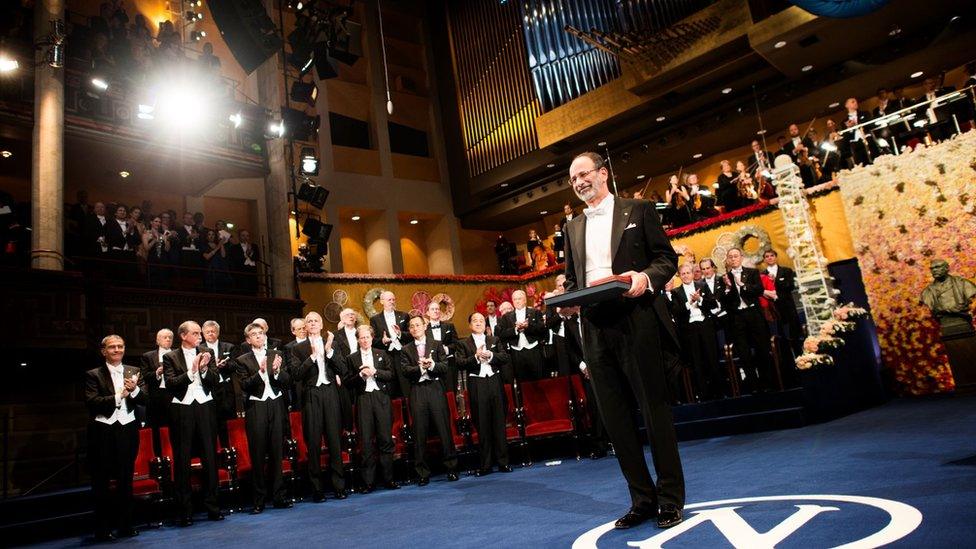
Alvin Roth received his prize for economics for his work on the system behind organ exchanges
Alvin Roth shared the prize for Economics from the Nobel Foundation in 2012 for his work devising a system to help more people give and get kidneys.
"Unlike many organs its possible for someone to give a kidney to someone they love and save their life," he explains.
"But sometimes they can't take your kidney even though you're healthy enough to give one. And perhaps I'm the donor in a in a similar pair, I would love to give a kidney to someone I love but I can't.
"But maybe my kidney would work for your patient and your kidney would work for my patient. That's the simplest kind of kidney exchange where two donor pairs get together, and each one gets a compatible kidney from the other patients."
The work of Alvin Roth and his colleagues resulted in a system which has been able to scale up the number of kidney swaps, so now each year thousands of lives are saved.
But these organ exchanges are not yet legal everywhere. In Germany, for example, you can still only give an organ directly to someone in your immediate family. One concern is that vulnerable people will be tempted to sell an organ for money.
Nobel prize winner Alvin Roth explains how kidney exchanges work
It's not pairs of people. In some cases chains of people have come together to maximise the number of matched kidneys.
In one case, 70 different people were brought together so 35 donors gave their kidneys to 35 strangers so that others could get a new lease of life.
Aliana wasn't able to swap her kidney with her mother because doctors feared the kidney problems her mum had might be hereditary, so Aliana might have it too.
She still wanted to help her mum get a new kidney but time was running out, so she started to do some research and found it might be possible to swap part of a liver for a kidney.
"I started researching, the type of organs that can be donated while a person was still alive. And the liver is what came up most."
Aliana did not know that this was just a theoretical possibility and was not a regular operation. She started calling hospitals to see if she could donate part of her liver to someone in exchange for a kidney for her mum.
Aliana says a few hospitals did not understand what she meant: "I had a few hospitals transfer me to the morgue, because they didn't know what I was talking about."
Eventually she did get the right person for the job. John Roberts a surgeon at the University of California in San Francisco.
"He didn't just brush it off. I mean, I was just this 19-year-old girl, and I didn't know if I sounded crazy. My family was against it because they didn't want me putting myself in any danger."
With the help of the hospital they found two sisters who would pair with Aliana and her mum. One of the sisters would get part of Aliana's liver, and Aliana's mum would get a new kidney from the other sister.
Aliana has no regrets, so why does she think more of us are not doing it? "I think people gravitate away from the idea of organ donation, because of the fear surrounding it.
"These are major operations, there are definitely a lot of risks, but understanding it and going through the process with a team that will be there for you during the process is what helps."
Generation Change is a co-production by the BBC and Nobel Prize Outreach

You can hear Aliana's story and the story of other young people changing attitudes to organ donation on Generation Change on The Documentary, BBC World Service.
Related topics
- Published5 January 2022
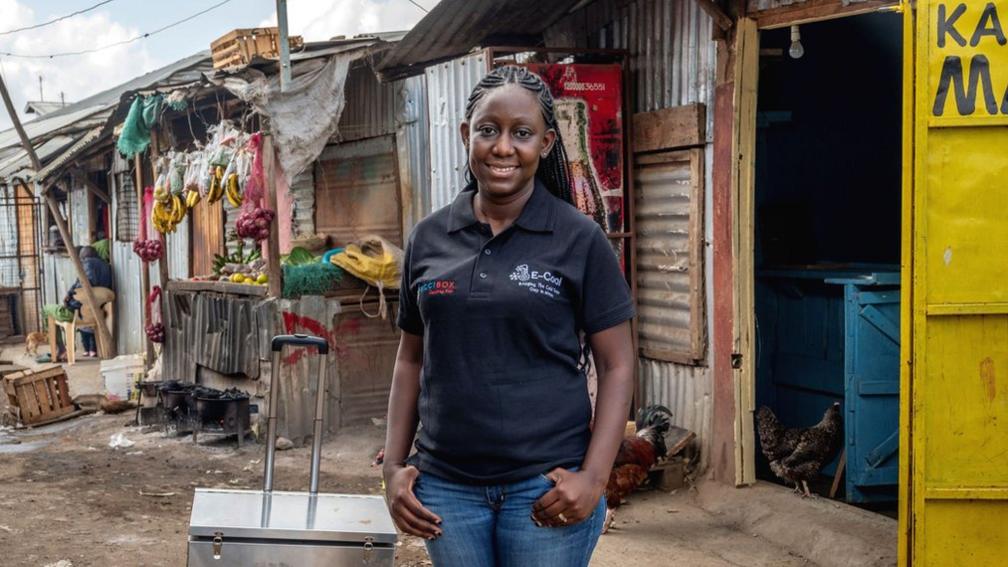
- Published7 January 2022
